Fintech Solutions That Drive Personal Financial Success
A market scan of tech-driven tools and platforms that expand access to meaningful financial products, services, and potential for workers and learners of all backgrounds.
In the United States today, half of all workers earn less than $75,000 annually, and millions of workers and their families live paycheck to paycheck. Many of those workers likely have limited access to bank accounts and other traditional financial services. According to the Federal Deposit Insurance Corporation, in 2021, nearly 5.9 million U.S. households were unbanked, meaning no one in a household has a checking or savings account at a bank or credit union. Another 18.9 million were underbanked, meaning the household is banked but has used a nonbank transaction or credit product in the previous 12 months.
Lack of access to financial services and resources like bank accounts, home loans, capital to start businesses, or investment tools can limit the ability of people in low-wage jobs to securely manage their finances and build wealth. Moreover, financial struggles among workers can create retention problems and other challenges for employers. In the 2019 Financial Health Network survey of 1,000 full-time workers, 78% of the respondents said financial stress is a distraction at work.

However, at Jobs for the Future (JFF), we believe in the potential for tech-based financial products and services to promote broader economic inclusion and enable more workers to achieve personal financial success by providing unbanked and underbanked families—a population that includes disproportionately high numbers of members of Black households, Hispanic households, and households led by single mothers of all backgrounds, according to the FDIC—with tools they can use to manage their finances, carry out everyday transactions, make informed decisions about money, get fair loans, and build wealth.
With support from the Ares Foundation, we developed this market scan report to take an in-depth look at the emerging financial technology (fintech) marketplace. Our goal was to identify the most innovative and inclusive solutions currently available and explore areas where ongoing development of new products and services has the potential to help fulfill unmet needs. This report can serve as a resource for investors, funders, and entrepreneurs who are interested in learning about new investment and business opportunities within the market designed to meet the needs of workers in low-to-moderate-wage jobs and to serve people who have historically lacked access to tools to manage their finances and build wealth.
We reviewed 1,176 companies and service providers, conducted two focus groups, and identified 10 innovators to watch that we believe offer solutions that promise to promote financial inclusion and personal financial success. Each innovator brings a unique solution that advances financial resilience and economic mobility and has the capacity to evolve in response to ongoing transformations in our economy, including those that could result in the creation of higher-wage, quality jobs in fields like green energy and electrification. Employment opportunities in the green economy, along with other pathways to rising wages and quality jobs, can enable workers to shift their financial priorities from short-term survival to longer-term financial success and wealth-building. We believe inclusive fintech can play a central role in this transformation.
The Business Case for Solutions That Drive Personal Financial Success
The existing U.S. financial system is more accessible to and better leveraged by people in middle- and upper-income brackets. Mainstream financial institutions offer tools and services that provide customers with access to home and car loans, capital to start businesses, insurance, investment options, and more—all of which help families achieve economic stability and build wealth. However, the long- and short-term benefits of these vital services and resources can remain out of reach for many individuals and families—including the millions of people in this country with household incomes below the poverty level—who may think they can’t afford bank accounts because they don’t have enough money to meet minimum balance requirements or pay account maintenance fees or overdraft fees and the like.
For many fintech companies, increasing the number of people who can equitably participate in the U.S. financial system represents both a moral imperative and a market opportunity. Millions of people need access to tools to build credit, solidify emergency savings, and more represent a large base of potential customers. And there are several potential partners for fintech companies among the many financial institutions, especially credit unions, that have lagged in developing the digital-first tools needed to engage a customer segment that has been difficult for them to serve. In this way, fintech companies can create on-ramps to legacy financial institutions, thereby increasing inclusion in the financial system while gaining market share held by predatory companies like payday lenders and remittance services that provide financial services under punitive terms like high interest rates and harsh penalties for late payments.
To best serve the needs of people with low to moderate incomes, many providers of emerging fintech solutions are looking for opportunities to partner with employers that could provide their solutions directly to workers who would benefit from them and subsidize the cost of these perks or match employee contributions. In a tight labor market, offering fintech-driven solutions as employee benefits can yield strong ROI for employers because investments in the financial success of their workforce can lead to meaningful improvements in worker productivity and retention.
In a survey by TalentLMS, a provider of cloud-based learning management systems, 68% of 1,000 full-time U.S. workers polled said they would be more likely to stay longer at their current jobs if their employers offered financial wellness benefits.
Key Findings
These are the most powerful insights that emerged from our research:
- We estimate the size of the U.S. market for tech-driven financial solutions serving underbanked populations is $8 billion. This reflects the reality that roughly 25 million U.S. families are unbanked or underbanked and would be likely users of fintech tools to manage their finances. (See Appendix A for information about how we calculated the size of the total addressable market.)
- Many people with low and moderate incomes don’t trust mainstream financial institutions. Among members of unbanked households who participated in the FDIC's 2021 National Survey of Unbanked and Underbanked Households, “don’t trust banks” and “avoiding a bank gives more privacy” were the second- and third-most-cited reasons for not having an account (after not having enough money to meet minimum balance requirements). In contrast, many fintechs boast stronger customer net promoter scores (NPS) than traditional banks and financial institutions, according to CustomerGuage, a software-as-a-service platform that helps clients improve the B2B customer experience. CustomerGuage attributes the higher scores to a focus on customer service and narrow product lines. Participants in focus groups that we convened as part of the research for this market scan said they view financial institutions with wariness, given a perception that increasing profit is more important to them than providing truly personalized advice or service. (See Appendix B for more information about the focus groups.)
- Fintech companies design their tools for niche markets where they can optimize product-market fit with well-defined customer personas. Fintechs strive to address consumer challenges that may seem less lucrative or profitable to larger financial institutions. This market scan identifies numerous fintech providers that strive to increase financial inclusion by targeting specific populations like students or people who have recently immigrated to this country and others who are in early stages of their financial journeys.
- Employers can improve their bottom lines by offering workers benefits that promote financial wellness. For example, services that enable workers to open emergency savings accounts (ESA) or otherwise gain access to funds they can use to pay unanticipated expenses can reduce downtime and absenteeism. Even small, early investments in these services have been shown to enable workers to be more engaged and productive on the job because they experience less financial stress.

About This Market Scan
Jobs for the Future (JFF), in partnership with Ares Charitable Foundation (the Ares Foundation), as a part of the Climate Resilient Employees for a Sustainable Tomorrow (CREST) initiative, is examining how investors, founders, leaders, and decision-makers across financial technology (fintech) and financial services sectors can supply tools and services that serve workers with low and moderate incomes. These workers will see once-in-a-generation opportunities to take quality jobs in the emerging green economy and other high-growth sectors to ultimately build pathways to wealth and personal financial success. In this market scan, JFF is exploring the landscape of fintech tools designed for people with low incomes and members of underbanked populations and highlighting innovative approaches to financial success and wealth-building. These solutions include both direct-to-consumer tools and employer-provided financial benefits. While these solutions will be relevant for workers transitioning into millions of new green jobs over the coming years, they will also more broadly support all workers in building more resilient financial foundations for themselves and their families, regardless of their occupation or industry.
Authors
Molly Dow
Senior Manager, JFF
Beth Massa
Manager, Insights, JFFLabs
Max Milder
Director, Insights, JFFLabs
About Climate-Resilient Employees for a Sustainable Tomorrow (CREST)
CREST is a five-year, $25 million career preparation and reskilling initiative of the Ares Charitable Foundation (the Ares Foundation) that aims to help close the gap between the demand for a skilled workforce for green jobs and the number of people prepared for these opportunities. Working with our partners and local communities, the Ares Foundation can deepen our impact, harness new opportunities, and help create a green, resilient future that benefits generations to come.
About JFFLabs Market Scans
At JFFLabs, we believe that innovation and technology, in concert with the continued transformation of traditional systems and policy change, can revolutionize the learn and work ecosystem and, in turn, the ways in which we all live, learn, and work.
Our market scans are based on deep dives into innovation and technology landscapes filled with solutions that are transforming learning and working. Our goal is to identify opportunities, trends, market dynamics, and impact investment insights. Those efforts yield market scans that feature mission-aligned companies and nonprofit organizations of all sizes, from seed-stage startups founded by inspiring innovators and entrepreneurs to growth-stage organizations that are already creating significant social impact and business value.
We review hundreds of organizations to assess their approach to and concern for social impact, and the traction their efforts have gained. We identify the most innovative and advanced technologies and programs connecting people to rewarding jobs and careers, valuable education and training opportunities, effective workforce and education systems, and equitable, resilient opportunities for economic security and mobility—at scale. For more information, visit jff.org/insights.


